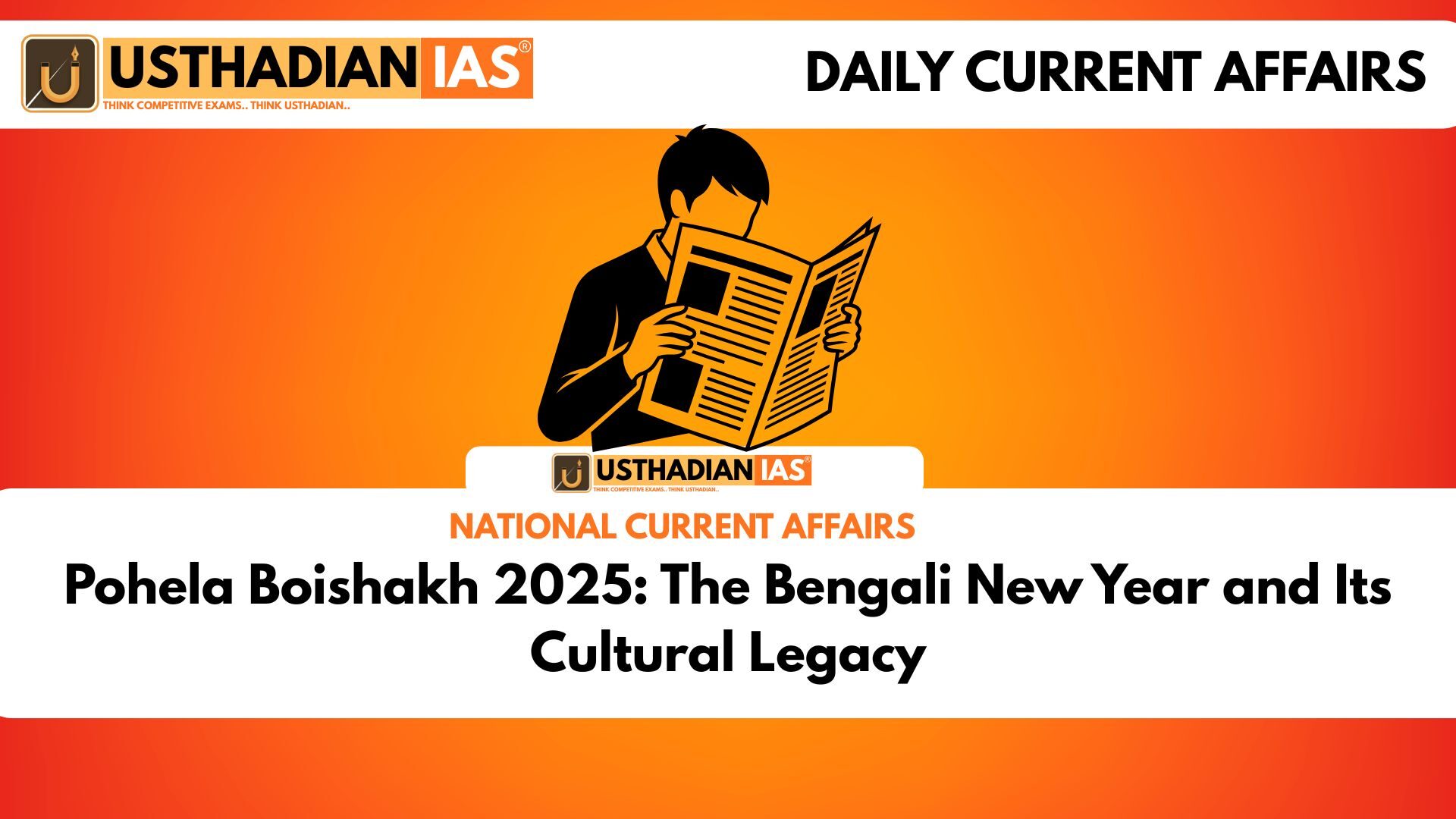Welcoming the Year 1432 with Pohela Boishakh
Pohela Boishakh 2025: The Bengali New Year and Its Cultural Legacy: Pohela Boishakh, the Bengali New Year, will be celebrated on April 15, 2025, welcoming the year 1432 as per the traditional Bengali calendar. The festival marks Mesha Sankranti, the day the Sun enters the zodiac sign Aries, and symbolizes new beginnings for Bengali communities across India and Bangladesh. Dressed in vibrant reds and whites, people gather to celebrate with music, dance, and traditional feasts, reaffirming their cultural identity.
Roots in Royalty and Reform
The Bengali calendar, also known as Bangabda, traces back to 594 CE and is credited to King Shashanka, an early ruler of Bengal. Later, Mughal emperor Akbar refined the calendar to align agricultural cycles with tax collection, blending solar and lunar elements into a practical format. Today, this hybrid calendar remains central to cultural and religious life in Bengal, with different reforms adopted in Bangladesh and West Bengal.
How Pohela Boishakh Is Celebrated
From Dhaka to Kolkata, and Tripura to Assam, Pohela Boishakh brings a unique sense of renewal and celebration. Cultural programs include Rabindra Sangeet, Baul folk music, traditional ‘Alpona’ floor art, and Boishakhi fairs featuring handicrafts and sweets like panta bhat and ilish maach. Community prayer gatherings for peace and prosperity are held, often in temples or open fields. In Assam, it coincides with Bihu, and in Tripura, tribal communities observe the day with their own folk customs.
Reforms and Regional Differences
While Bangladesh adopted a revised calendar in 1987, offering a consistent structure (31 days for the first five months and 30 days for the rest), West Bengal continues to follow the traditional version, which varies based on Hindu lunar tithis. This means the celebration falls on April 14 in Bangladesh, but on April 14 or 15 in India, depending on astronomical calculations.
A Festival Beyond Dates
Pohela Boishakh is more than a date—it is a symbol of resilience, unity, and identity. It serves as a reminder of the shared heritage between people of India and Bangladesh, cutting across political borders. Schoolchildren sing songs by Tagore, small businesses reopen account books with “Haal Khata”, and families reconnect over festive meals. In an era of global modernity, the Bengali New Year continues to inspire a sense of belonging and pride.
Static GK Snapshot
Pohela Boishakh 2025: The Bengali New Year and Its Cultural Legacy:
| Category | Details |
| Festival Name | Pohela Boishakh |
| Occasion | Bengali New Year |
| 2025 Date | April 15 |
| Calendar Used | Bangabda (Bengali Calendar) |
| Current Year (Bangabda) | 1432 |
| Historical Origin | King Shashanka, 594 CE |
| Later Reforms | Akbar’s Solar-Lunar Tax Calendar |
| Bangladesh Reform | Calendar revised in 1987 |
| Celebrated In | West Bengal, Bangladesh, Assam, Tripura |
| Cultural Highlights | Alpona, folk music, fairs, traditional food |








